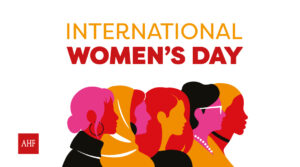“TARV” or “ARV” are the acronyms used to refer to antiretroviral treatment or therapy, the combination of drugs that people living with HIV take to stay healthy. This occurs because the drugs prevent the replication of the virus and keep it at “undetectable” levels, at a concentration so low that tests cannot detect it and it cannot be transmitted.
And while therapy has become more convenient and efficient over time, and there are now a wide variety of options available, it may be necessary in some cases to make changes to ART to ensure better results.
When is it important to change medications and what factors should be considered? We tell you below:
Detectable viral load and viral resistance
One of the main reasons for changing ART is when the viral load is detectable. That is, when the HIV virus, despite treatment, is still active in the blood.
Remember that the ultimate goal of antiretroviral therapy is to reach non detectability, and that is the indicator to know that the drugs are working properly. For the same reason, if after a while the person continues with a considerable burden, it may be necessary to change treatment.
Another important factor is the resistance of the virus, which occurs when the HIV strain develops mutations that allow it to be immune to certain drugs. As in other cases, this can occur when taking treatment is not optimal (daily) or when the virus has had contact with other strains.
If viral resistance is detected, a change in ART will be required to use drugs that are effective against this resistant virus. But remember: medicine has advanced enough that several options are available.
Intolerable side effects
While most current medications have decreased side effects, it’s not surprising that people still experience them with their antiretroviral therapy.
These effects can be mild such as heartburn, fatigue or headaches (particularly at the start of treatment), or more serious such as sleep disturbances, nausea, pain and changes in blood lipid levels.
If the adverse effects of ART are too bothersome, are making it difficult for you to adhere to treatment, or are affecting your quality of life, it is important to consult with your medical team. The specialists can use strategies to minimize discomfort, or in more serious cases, seek another therapy.
Interactions and new therapeutic options
It is also possible that other medicines interact with antiretroviral and affect their effectiveness. Even over-the-counter or alternative therapies.
In some cases, foods can interact as well. Or it may happen that a specific medicine needs certain conditions, such as taking it with meals or spaced its use with respect to other medicines.
The important thing, always, is to consult with the pharmaceutical team for possible interactions before starting a treatment. And if there is any suspicion or doubt, ask again.
In addition, it is important to consider that research in the field of HIV continues to advance and that new drugs and ART combinations are constantly being developed. These new options may offer advantages in terms of efficacy, safety, and convenience. And they usually further decrease any adverse effects.
Frequent questions:
How do I know if my ART is working correctly?
The most accurate way to assess the response to ART is through viral load and CD4 count tests. If your viral load remains undetectable and your CD4 count is in a healthy range, the therapy is likely working properly. But remember that it is important to perform these tests regularly and consult with your doctor to evaluate your progress.
What are the factors to consider when changing ART?
Consider factors such as a detectable viral load, viral resistance, intolerable side effects, interactions, and new therapeutic options. Consult your doctor to assess your specific situation and make an informed decision.
What should I do if I experience side effects with my ART?
The first thing is to inform your medical team, they will evaluate the situation. They can offer strategies or medications to manage them, and in other cases, make a change of therapy.
Conclusion: think of you.
The goal of all permanent treatment is its adherence. Not only does it matter that the ART is doing its job, but also that the medications are accessible and you can take them comfortably. For the same reason, get closer to your team, work collaboratively, maintain open communication about your doubts and discomforts. In this way they will be able to arrive at the precise combination that will guarantee you a healthy and happy life.
And don’t forget that if you have any questions about your treatment, you can contact AHF in your country. In addition, we do free HIV tests in the event that a friend wants to know their serological status. Locate our offices in your country and learn about all our services.






